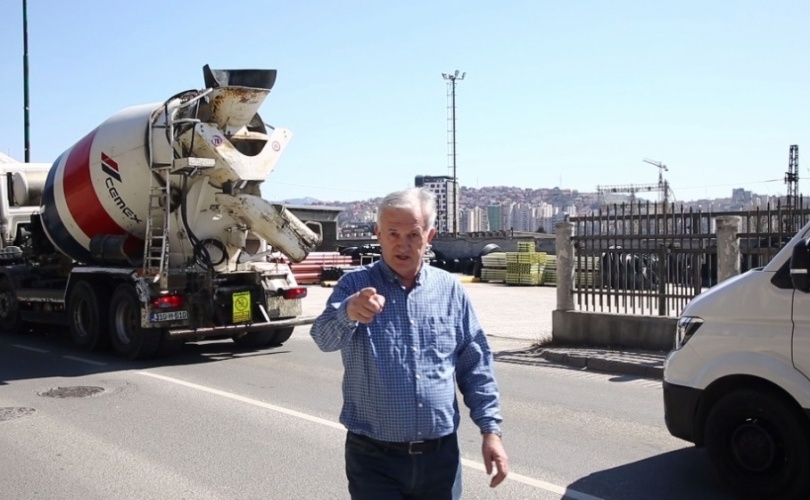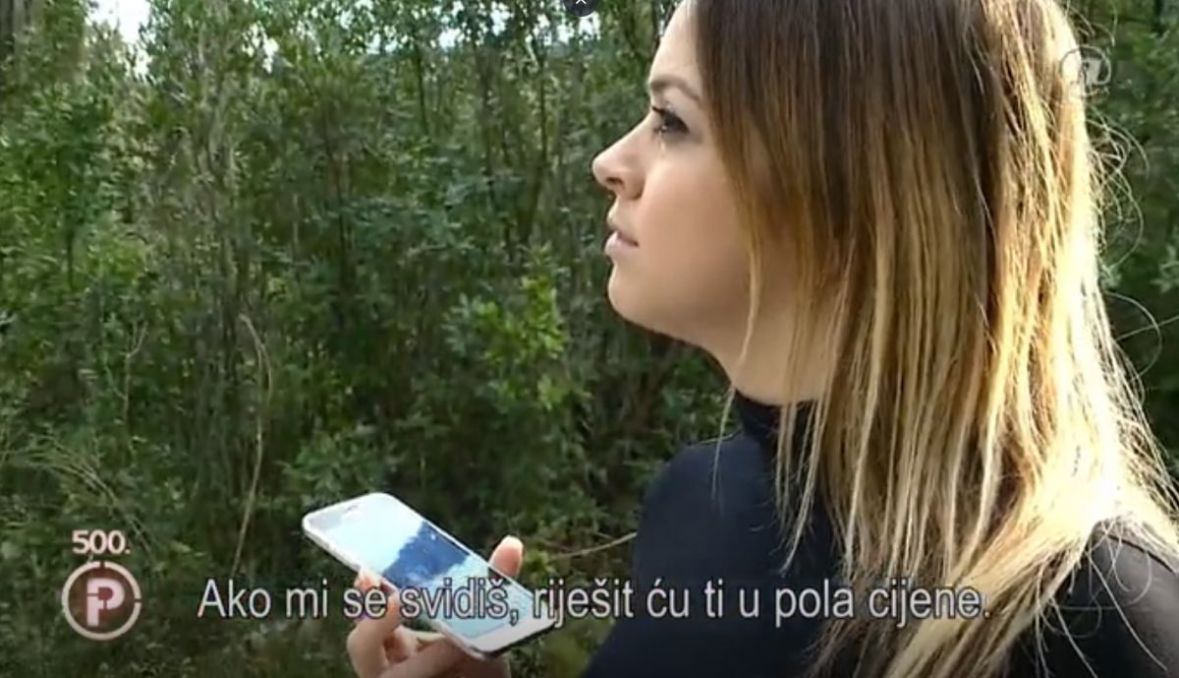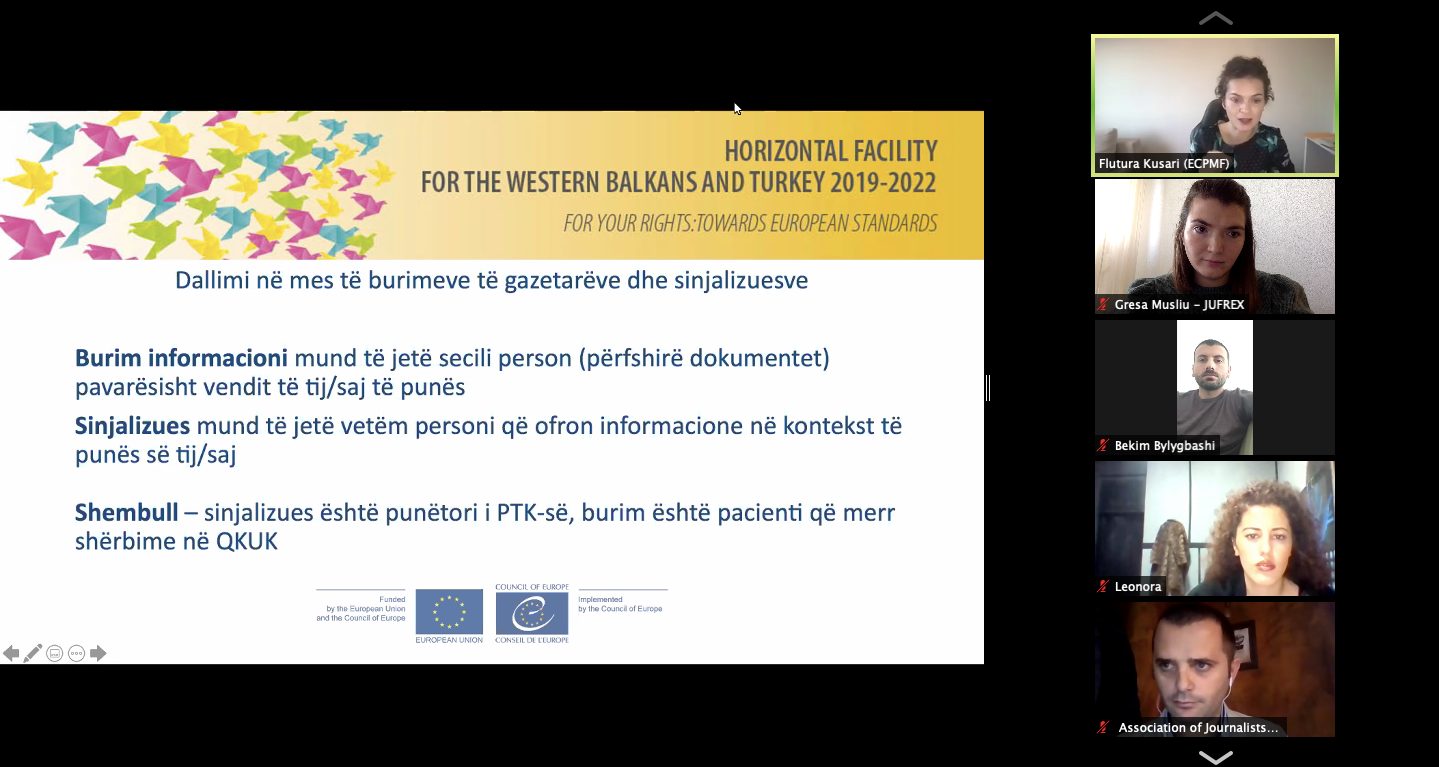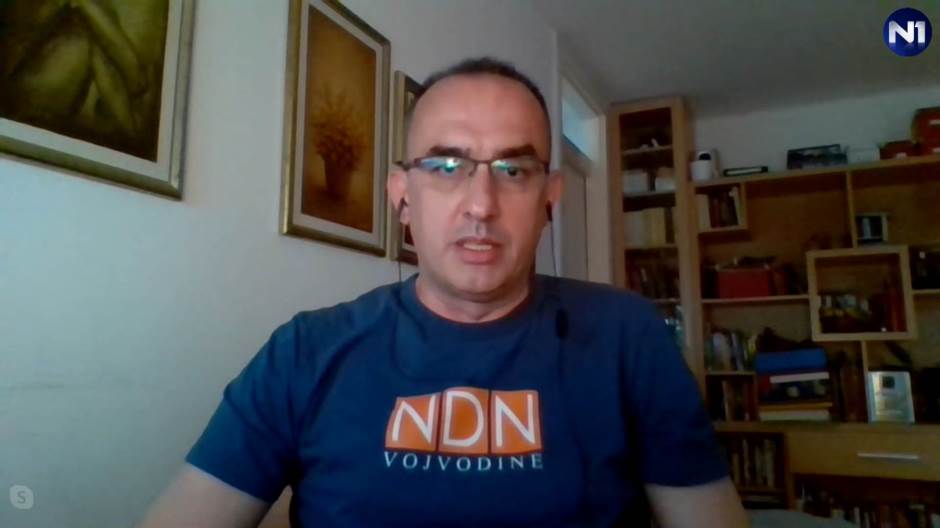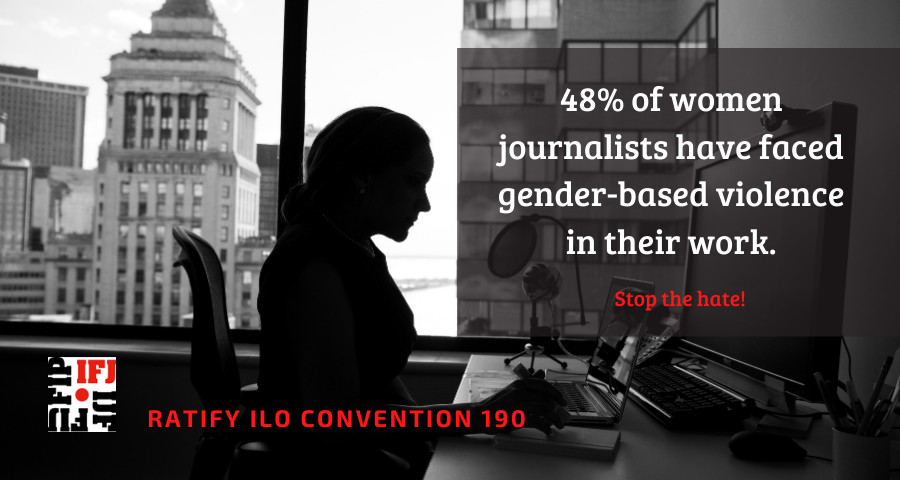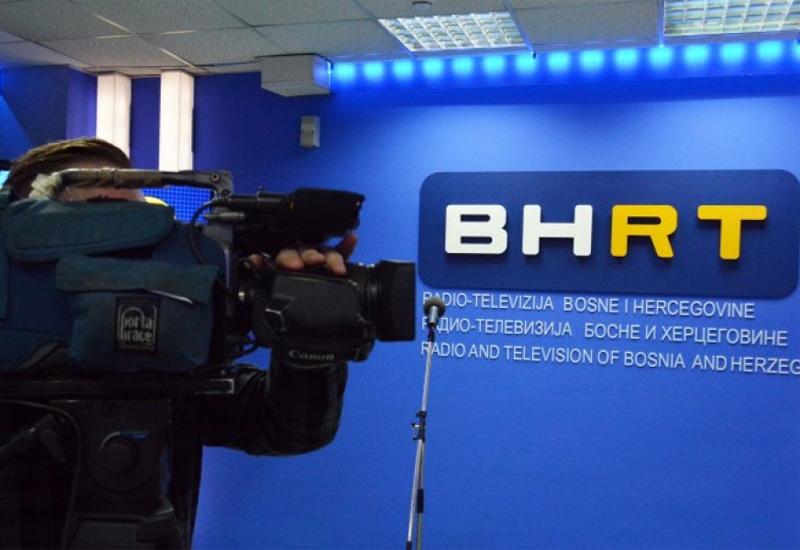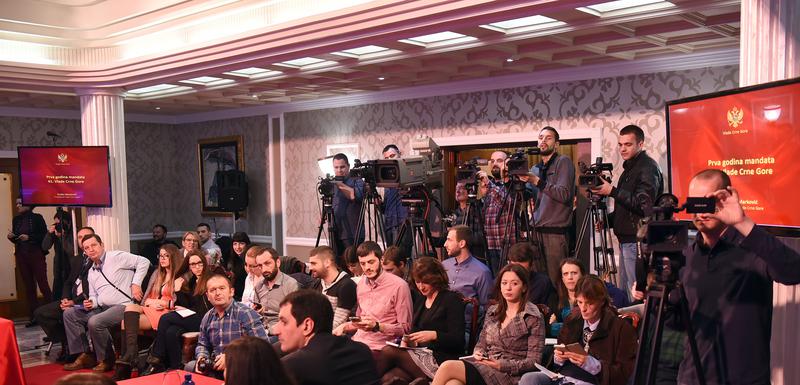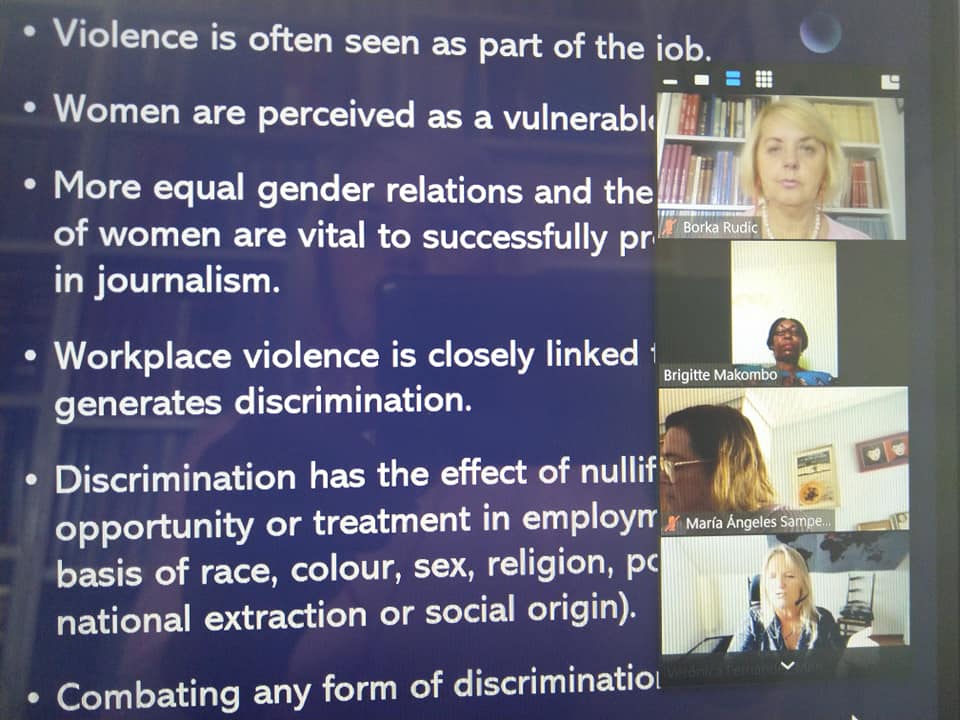By: Zinaida Đelilović
SARAJEVO, 29.11.2020. –“As soon as I heard that your wife is overheard, I decided to let you know immediately”. This statement was heard on video recording, which was posted on Slobodna Bosna portal. It would have not been strange and unusual if this statement was not forwarded to Oleg Cavka, a state prosecutor of BiH by Muhamed Ajanovic, the Dean of Dental Medicine Faculty at the University of Sarajevo.
Slobodna Bosna managed to, within the 16 seconds of this video recording, to reveal real picture and situation within judiciary system of BiH. Although the video recording was released with the purpose to (once again) demonstrate and display the principles upon which the BH judiciary system is based on, the entire burden for “blame” was (again) directed against the media houses that had released and posted it in the first place. This time it happened to be Slobodna Bosna.
“No permit is required when recording is to be done in public”, claimed D. Markovic, former BH prosecutor, during the meeting session of the Temporary Investigative Commission aimed to determine the situation in BH judiciary system (held on 26 August).
He also added that everything depends on “how the prosecutor would treat it”.
Still there are those that would disagree with this particular view and opinion, that is, they rather interpret this specific legal provision in different way. This is how Milan Tegeltija, chairman of the High Court and Judicial Council of BiH, while being interviewed at FACE TV, assessed that the public releasing and posting a conversation between Ajanovic and Cavka represented a “crime”. His statement and claim should not surprise anyone because certain official judiciary representatives have recently clearly demonstrated that investigative and research media based journalists disturb and annoy them instead of having them as their support.
Interrogation of journalists at Prosecutors’ Office
I can’t actually recall when was the last time the officials at the Prosecutors’ Office of BiH launched an investigation based on investigative journalists’ story. However, I do remember quite well the interrogation of Azra Omerovic, female “Zurnal” journalist. She had opened a Pandora Box of the educational system in BiH, by releasing and posting in public video recording called “How to buy a diploma in 17 days for BAM 2.500.00”
Azra managed to get the phone number of a “mediator”, that is, a person involved in a diploma buying (Senad Pehlivan, a person that was indicted at the prosecutor’s office of Una – Sana Canton). She called him and introduced herself as a person who was willing to purchase a high school diploma (Medical High School) from Sanski Most. She managed to record this conversation with Pehlivan and released it later on. Soon after this, she was called to Prosecutor’s Office (summon was signed by Oleg Cavka, a state prosecutor). Oleg Cavka was interrogating Azra Omerovic for nearly 4 hours, since she had previously agreed to appear and cooperate with prosecutors. He was mainly interested in two things: how did she get the information and how did she get Senad Pehlivan’s phone number.
“Prosecutor Cavka had, deliberately or not, completely forgotten about Article 82 of the Law on Criminal Procedure of BiH which clearly defines that “no person can be interrogated as a witness that by her or his testimony may violate the duty of holding classified information which includes religious clerk, confessor, and journalists keeping the source of the information classified”.
Oleg Cavka tried to act similarly with Ana Malbasa, female journalist of “Provjereno”, NOVA TV show; however, Croatian judicial system managed to protect her. Namely, Malbasa also tried to get in touch with the person that was a mediator in buying diploma papers. He wanted to have a sex with her in return. Prosecutors’ Office of BiH, through international legal aid, demanded that she should be interrogated in Zagreb. However, Zagreb County Court officials advised Ana Malbasa that she may (should she wanted to do so) refuse to testify in order to protect her information sources, which was exactly what she did.
These kinds of actions by Oleg Cavka should not surprise anyone if we take into consideration the statement delivered by Gordana Tadic, a chief prosecutor of Prosecutors’ Office of BiH in April 2019, when she openly addressed media representatives claiming that they should inform Prosecutors’ Office or the Police official authorities about their investigation regarding criminal, misuses, intelligence affairs and similar and associated occurrences, before they release them in public. This of course included all the evidence and proofs they manage to get! It seems common sense, doesn’t it?
I shall quickly refer to Croatian judicial system and their view regarding the case of Ana Malbasa, female journalists. Their reaction in this particular case deserves all compliments; however, we should not forget how they had reacted in Ivan Zad’s case (who was on parole) (conditional discharge), because he was apparently illegally recording phone conversation of HDZ (political party) member of state parliament.
During the “Diploma” and “Calking” affairs, with general public “droning” about them, it seemed that everything was actually about criminal deed and unauthorized recording, notice Mirjana Marinkovic – Lepic, member of the Temporary Investigative Commission for determining the situation in BH judiciary system.
“Unauthorized recording is actually the action of recording someone at her or his premises. This is something that characterizes and describes this criminal deed, but we have seen, despite the former, that everything still depends on how prosecutors or judges assess the situation. We had the opportunity, during the interrogation of former prosecutor with the Prosecutors’ Office of BiH (interrogation was conducted by the members of the Commission) to hear comments that there was no dilemma whatsoever with this particular deed. Therefore, it is unambiguous that if someone was being secretly recorded in public, the case cannot be treated legally as the above described criminal deed”, claimed Marinkovic – Lepic.
She added that recently, there have been more criminal cases discovered by journalists, rather than being detected by the police official authorities. However, it is concerning that journalists have consequently, been subject to prosecutions, that is, they are constantly called to interrogations and asked to testify, regarding their video and audio recordings, including the circumstances under which they had discovered and detected particular cases.
“As far as private and public interests are concerned, the protection of privacy is one of the fundamental human rights, but in these cases (the two above mentioned and listed affairs) we should observe the issue through the definition constellation and unauthorized recording. If unauthorized recording occurs in her or his premises it clearly represents a criminal deed. On the other hand, if video or audio recording, (at the same time obeying these law provisions), reveals criminal deed, it should thus be considered and treated as genuine public interest and it should accordingly be taken as evidence and initial point in regard with launching legal investigation”, concluded Marinkovic – Lepic.
Investigation, research, survey or criminal offence
Nermin Alesevic from Velika Kladusa wanted to prove on what principle has BH Judiciary system operated by making video recording footage which was later known in the public as the “Calking” affair.
“If I hadn’t made this particular video recording, no one would have believed that I was sitting at the same pub table with Milan Tegeltija”, Alesevic “complained” once to local journalists.
Exactly – no one would have believed that Tegeltija, while sitting at the local pub had said:
“Nermin, send me the case file number so I could see who was involved in it and I will then let you know what I can do about this particular case”.
Tegeltija was in this case a witness, and Aleskovic was charged for unauthorized recording.
All three above mentioned video recording cases perhaps best displayed the shape of BH judiciary system, at least on state level, because we should still not forget the reaction by Una – Sana Canton Prosecutor’s Office that had, based on media reports, launched an investigation regarding false diploma papers.
We asked Dzana Brkanic, a Balkan Investigative Network in BiH (BIRN) official, what makes journalists decide to make secret recoding and she claimed that the decision of making such secret action does indeed demonstrate a serious undertaking.
– Consulting with a director is obligatory before any BIRN journalist decides to go for secret recording, regardless to whether we refer to justifying the use of such methods and techniques or whether we talk about public interest, including whether the organization could be sued and indicted for uncertain and insecure “investigative undertaking actions”, or, at the end, whether there is a possibility that the organization could be sued or indicted for instigating and encouraging its employees to conduct a criminal offence. I personally always introduce myself and clearly point out that I am a journalist and never invite them for an “informal chat”. If I happen to record phone conversation, I indicate that as well, and every single time I ask my collocutors (interviewees’) if I have their permission to publically reveal their full names as part of their statements, that is, part of our interview. Also, I introduce myself with full and correct information about myself, because the organization that I work for works on high ethic and professional principles, stated Brkanic.
BIRN Guideline covering required details about journalist’ work clearly defines that projects including secret operations (such as hidden video or audio recording) can be conducted only with manager’s previous consent and approval. As part of its assembly, there is a lawyer at BIRN whose task is to check the investigation and legally sensitive issues. Also, before certain text, article or post is revealed, released, published, posted or broadcasted, extremely controversial stories and interviews, including complex and complicated investigations, surveys or researches have to undergo additional checkups, controls and supervisions by chief-in-editors and directors before they finally get their approval.
– I personally consider any unauthorized recording as rather sensitive issue, unless under special circumstances when the releasing of such information would clearly serve general public interest with the purpose of detecting and revealing corruption or some other kind of criminal offence, added Brkanic.
She also added that some verdicts (passed by local courts), released journalists from criminal offence indictments, in regard with unauthorized recordings, such as the case of Damir Kaletovic, who was set free according to the Second Instance verdict passed by Banjaluka District Court council. Council members claimed that “the journalist was entitled to free expression pursuant to Article 10 of the European Convention on Free Expression, taking into consideration that Vitomir Popovic was public figure at the time also performing public function”.
– On the other hand, some colleagues that had released and broadcasted secret recordings failed to confirm the identities of persons they had been recording, so one should be very cautious and careful while submitting the recording to her or his editing office superiors, as far as the information sources are concerned. BH judiciary institutions have for years failed to indict, sue and legally process “big fish”, so therefore certain recordings, that had been posted in public, clearly indicating illegal discrepancies or criminal deed committed, have been left unprocessed and completely ignored by judiciary official authorities. Along with that, the system of checking the origin of assets for judiciary officials and politicians still does not exist in BiH, unlike in Albania. During the period of last three years, Albania has, by applying the “vetting” system and by checking the origin of assets, managed to dismiss over 100 managing judiciary officials, while at the same time judges and prosecutors in BiH have managed to find the ways to postpone the submission of their assets cards. This is what makes journalists’ work even more difficult (particularly those that cover this specific area) in terms of getting certain information under these circumstances in our country, even including secret recording which in this context is absolutely justified. According to my personal experience and while presenting stories that Balkan Investigative Reporting Network was working on in BiH, during the workshop where many judiciary and court official representatives were present, we were told that it would be better if we would send sensitive information to prosecutors’ offices in the first place, rather than releasing or posting them in public. Although this may sound acceptable on one hand, on the other hand it could result in a total failure because one of the participating prosecutor (publically) asked the journalists to do his work instead of doing it himself, concluded Brkanic.
The situation in local judiciary system in BiH has never been as chaotic as it is now. Mr. Markovic, a Former prosecutor, who had been working for 40 years, perhaps best explained what caused the creation of such chaotic environment in judiciary system in BiH. In front of Investigative Commission he stated the following:”We face the situation where the reality is created and today we believe that certain cases are proved and confirmed if they are presented and displayed in most convincing way, rather than presenting the actual and true situation”.
Certain judiciary officials, from time to time, should be reminded of what people often refer to as general public interest, including Article 1 of the Press and Online Media Code in BiH clearly stating that:” The public interest, according to this Code, is defined as the procedure and/or information which has the intention of helping the public create personal opinions and decisions about issues and events, including the efforts to detect criminal and/or civil offenses, and to prevent the seduction of the public by certain statements or actions of individuals or organizations.”
(This article has been published in the 76th issue of E-journalist bulletin, within the JUFREX project and with the support of Council of Europe)


